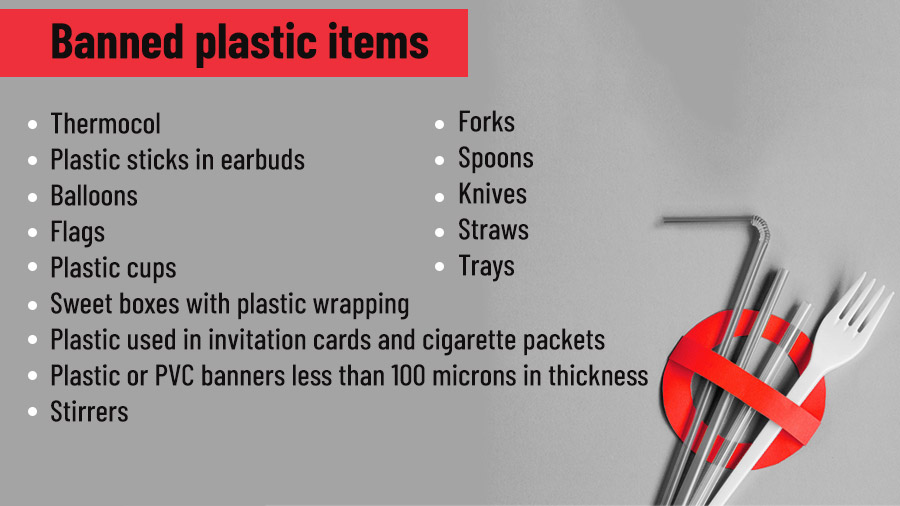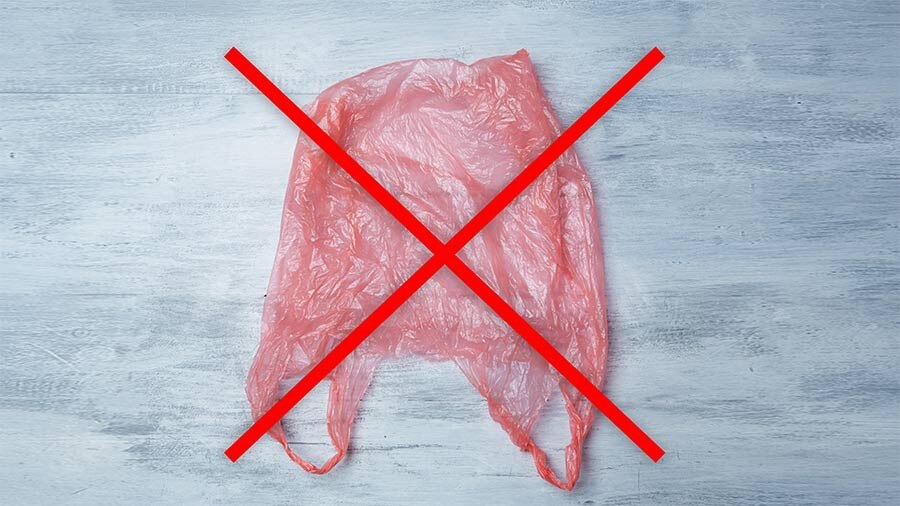Green experts remain doubtful about the implementation of the new plastic norm that will come into effect in West Bengal from Friday, citing the futility of such norms brought over the last two decades.
“The real challenge of a norm lies in its execution. We’ve seen over the years how plastic norms have remained only on paper,” said Naba Dutta, secretary of the environment platform Sabuj Mancha.
“A cost-effective alternative to plastic must be put in place. Without it the current norm is likely to go the same way as the previous ones,” said Biswajit Mukherjee, retired chief law officer of the State Pollution Control Board.
Mukherjee pointed out that there was no effort from the Union government to create appropriate alternatives before bringing the new set of laws.
“Stopping the production of banned plastic items is extremely important — it’s linked with having cost-effective alternatives,” pointed out environment activist Subhas Datta.
Penalty and prize
Government officials, however, claim that there will be better implementation of the new plastic norm this time as many municipalities are actively going to join the awareness drive.
“Apart from the aggressive awareness drive, the government has decided to impose a fine of Rs 500 on anyone stocking and distributing plastic items below 75 microns in thickness. The users, too, may have to cough up a fine of Rs 50,” said an official of the state environment department.
State Pollution Control Board member-secretary Rajesh Kumar said common people might lodge complaints against the manufacturers and sellers of plastic items, including plastic carry bags, under 75 microns in thickness through the Parivesh app available on Google Play Store.
“Not only the violators will be identified and penalised but the complainants will get Rs 500 for lodging a valid complaint,” he said.
“According to studies conducted by both Jadavpur University and Jalpaiguri Engineering College, there may be around 1,200 plastic manufacturing units in the state. We are trying to bring them under the monitoring mechanism,” said a senior official of the State Pollution Control Board.
“We’ve asked two major plastic raw material suppliers in the state to stop selling their products to the units that manufacture the banned items”, he added.
New plastic norm from July 1
On June 27, the state environment department issued a notification banning the manufacture, import, stock, distribution, sale and use of several single-use plastic items from July 1.
Based on the Union government’s plastic waste management rules, the order mentions that extensively used items like thermocol and plastic sticks used in earbuds, balloons, flags and ice creams will be banned.
Plastic cups and cutleries used in many social gatherings will also be banned.
The ban also covers the “wrapping or packaging film around sweet boxes, invitation cards and cigarette packets, plastic or PVC banners with thickness of less than 100 microns”.
The order also refers to the greater peril of thin plastic carry bags, stating that the Union ministry has already banned the use of such bags less than 75 microns in thickness. All plastic bags under 120 microns will be banned from December 31.
“We are in the process of identifying the factories that manufacture the banned items. We don’t want anybody to lose their livelihood, but want them to produce only legalised items,” said state environment minister Ratna De Nag on Tuesday.
The minister said the state government wanted to promote jute as a viable alternative.

